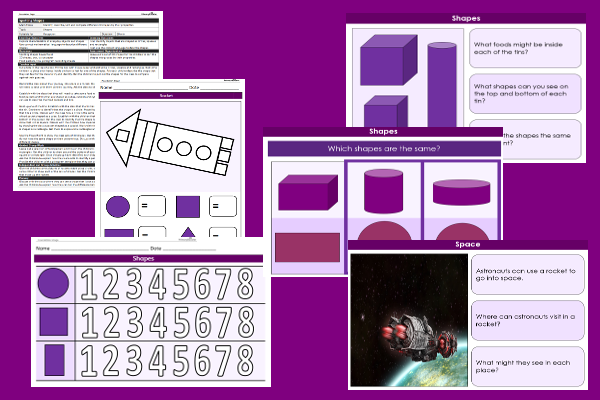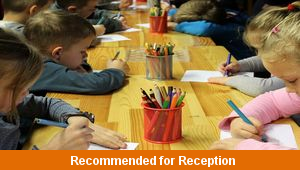Lesson Five – Spotting Shapes

This numeracy teaching pack for the Foundation Stage gets the children to identify, describe, sort and compare different 2D shapes by their matching individual properties including their number of sides and corners.
The class can count and record the numbers of different shapes that can be seen in an illustration of a space rocket flying to a planet including squares, circles, rectangles and triangles.
Download this teaching pack including a lesson plan, classroom activities and an interactive presentation to teach the children to identify, describe, sort and compare different 2D shapes by their matching individual properties including their number of sides and corners
Activities in this teaching pack include a set of worksheets to identify and count the numbers of circles, squares, rectangles and circles used to make a shape picture and a template to record the number of shapes that have been sorted into three groups for circles, squares and rectangles.
The interactive presentation gets the children to explore how to identify, describe, sort and compare different 2D shapes by their matching individual properties.
This lesson is part of a numeracy scheme of work to get the children to identify, describe and compare different 2D shapes by their individual shape properties including numbers of sides and corners. There are teaching activities for shared learning, differentiated worksheets to support independent learning and interactive presentations to introduce concepts and key skills.
-

Halving Things
Explain and model how to find and record the halves of some of the different objects that can be used at home and in school
-

School Friends
Identify and learn classroom routines and organisation by exploring and describing information and likes and dislikes for each of their classmates
-

Classroom
Identify the location and function of different objects used in the classroom and explore how to formulate rules to manage the classroom safely
-

Shape Patterns
Identify, describe and compare the sequences of geometric shapes that have been used to create a range of different patterns
